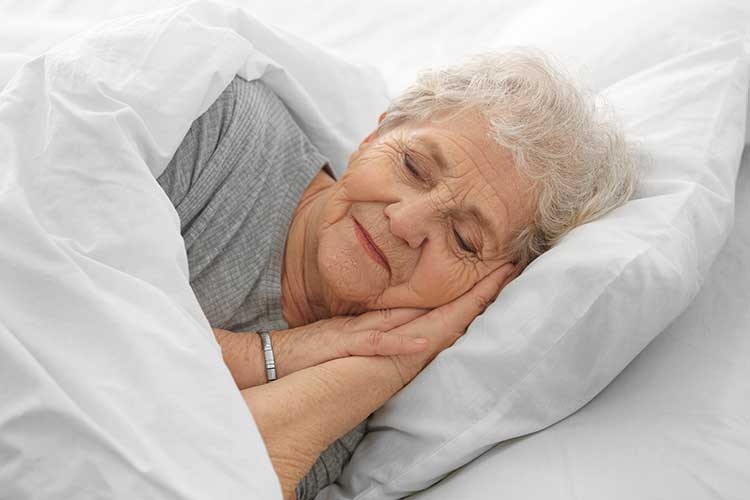As they age, older adults find themselves facing unique health challenges. Whether on their own or requiring in-home care services, by maintaining a healthy lifestyle, older adults can help prevent and control many of these issues while improving their quality of life.
Optimal Health Guide
Health becomes a major focus as a person ages and certain deficiencies appear. Though older adults may be free of disease, the natural ageing process can still be quite challenging to overcome (Smith et al. 2023).
Even so, a few simple things can be done to obtain and maintain optimal health.
Healthy Diet
Sticking to a healthy diet is a key component to maintaining health at any stage of life, but is especially important for older adults. A nutritious and balanced diet can help prevent common health problems like heart disease, high blood pressure, stroke, diabetes, obesity and many others.
People aged over 50 are recommended to consume the following foods and portion sizes each day:
- 2 serves of fruit (one serve is about 150 g, e.g. a medium apple or two kiwifruits)
- 5 to 5½ serves of vegetables (one serve is about 75 g, e.g. half a cup of cooked green or orange vegetables)
- 3 to 6 serves of grains (one serve is about 500 kilojoules, e.g. one slice of bread of half a cup of cooked porridge)
- 2 to 2½ serves of protein (one serve is about 500-600 kilojoules, e.g. 65 g of cooked lean red meat)
- 2½ to 4 serves of low-fat dairy (one serve is about 500-600 kilojoules, e.g. one cup of milk or ¾ cup of yoghurt).
(Australian Dietary Guidelines 2021; Better Health Channel 2017)
Note: Daily requirements vary depending on age and gender.
Reducing the intake of sodium, fats and sugars is recommended (Better Health Channel 2017).
Older adults with health conditions such as diabetes or heart disease may need to follow different dietary requirements as directed by their physicians.
Adequate Sleep

Getting the proper amount of sleep at night is important. Older adults should be getting between seven and nine hours of sleep every night. Being well-rested helps in lowering health risks and maintaining energy levels throughout the day (Sleep Health Foundation 2019).
Lack of sleep can cause depression, irritability and decreased cognitive functioning (Better Health Channel 2014).
While medications or other health issues can cause insomnia, there are things older adults can do to improve their sleeping habits. Sticking to a sleeping and waking schedule can help, as well as eliminating caffeine and other substances (Suni & Singh 2023).
Fresh Air
By spending time outdoors, older adults are able to exercise, socialise with friends, meet new people and gain exposure to sunlight, which increases levels of Vitamin D (Active Minds 2019).
Getting outside and into the fresh air can prevent sleep disorders and other health conditions. It also improves cognitive function and physical mobility (Active Minds 2019).
Social Media
While social media is generally associated with younger generations, older adults can benefit immensely from social networking. A 2016 study from Michigan State University suggested that older adults who use social media and other social technologies have better physical and mental health outcomes than those who don’t.
Social media networking with family and friends prevents feelings of loneliness and depression by helping older adults feel more connected with the world around them. In the study, older adults who utilised social technology reported feeling more satisfied with life (Michigan State University 2016).
Brain Games
Research indicates that exercising the brain through playing ‘brain games’ such as Luminosity and Sodoku puzzles, and participating in other activities that stretch cognitive abilities, can improve the processing power of the brain (Weir 2014).
Compassion
Mental health is an important element of maintaining physical health. Therefore, it is imperative that caregivers treat older adults with patience, respect and understanding.

Topics
References
- Active Minds 2019, 'Dementia and The Importance of The Outdoors', Happiful, 22 May, viewed 20 June 2023, https://happiful.com/dementia-and-the-importance-of-the-outdoors
- Australian Dietary Guidelines 2021, Recommended Number of Serves for Adults, Australian Government, viewed 20 June 2023, https://www.eatforhealth.gov.au/food-essentials/how-much-do-we-need-each-day/recommended-number-serves-adults
- Better Health Channel 2017, Nutrition Needs When You’re Over 65, Victoria State Government, viewed 20 June 2023, https://www.betterhealth.vic.gov.au/health/healthyliving/Nutrition-needs-when-youre-over-65
- Better Health Channel 2014, Sleep Deprivation, Victoria State Government, viewed 20 June 2023, https://www.betterhealth.vic.gov.au/health/conditionsandtreatments/sleep-deprivation
- Michigan State University 2016, ‘What Digital Divide? Seniors Embrace Social Technology’, Eureka Alert, 25 August, viewed 20 June 2023, https://www.eurekalert.org/pub_releases/2016-08/msu-wdd082516.php
- Sleep Health Foundation 2019, Ageing and Sleep, Sleep Health Foundation, viewed 20 June 2023, https://www.sleephealthfoundation.org.au/sleep-topics/ageing-sleep
- Smith, M, Segal, J & White, M 2023, 'Aging Well', HelpGuide.org, 15 June, viewed 20 June 2023, https://www.helpguide.org/articles/alzheimers-dementia-aging/staying-healthy-as-you-age.htm
- Suni, E & Singh, A 2023, How to Sleep Better, Sleep Foundation, iewed 20 June 2023, https://www.sleepfoundation.org/articles/healthy-sleep-tips
- Weir, K 2014, ‘Mind Games: Can Brain-training Games Keep Your Mind Young?’, Monitor on Psychology, vol. 45, no. 9, viewed 20 June 2023, http://www.apa.org/monitor/2014/10/mind-games.aspx
 New
New 
